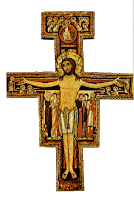There is some discussion about using the name "Old Catholic" and if that is acceptable given that there are "legitimate" Union of Utrecht Churches. Names in the Independent Sacramental Movement (ISM) are a very tricky thing. For instance: many Roman Catholics think of "Liberal Catholic" as advocating women's ordination, gay rights, etc., and not necessarily the esoteric sympathies that the Liberal Catholic Church has nurtured. Similarly, the Charismatic Episcopal Church is very clear that the "Episcopal" in their name is not indicative of participation in the Continuing Anglican movement but for leadership by bishops. There are also those that have a hard time making decisions, hence the Anglican Orthodox Byzantine Old Catholic Non-Jacobite Armenian Coptic Church. TM (Obviously this is tongue in cheek).
So, it can be difficult to convey the beliefs of a jurisdiction in a name. For this reason, the name Old Catholic is often used to symbolize a non-Ultramontanist Catholicism. Many ISM folks are very attached to the Old Catholic tradition, both for its collegiality as well as its emphasis on the local church. From my perspective, there are Anglicans who are not under the jurisdiction of the Archbishop of Canterbury. Yet, they are every bit Anglican in their understanding of the tradition. So, too, Old Catholics who are not members of the Union of Utrecht are validly claiming that tradition and the understanding of Ultrajectine Catholicism. Old Catholicism is very diverse. This includes in name (the Christian Catholic Church of Switzerland, the Catholic Diocese of Old Catholics in Germany, the Old Catholic Church of Austria, etc., etc.) as well as in practice (the Poles do not ordain women or gay individuals while the Dutch have been doing so for some time). Yet, they all co-exist because of their understanding of the Ecclesia through the local church. This is a rich, beautiful diversity that is the "big umbrella" of our faith.
So, why is it duplicitous, then, to call yourself a Roman Catholic when not in union with the Pope but not Old Catholic when not in union with the Archbishop of Utrecht? Well, for one, the Old Catholic Church does not have a presence in America. It did with the Polish National Catholic Church, but that has since dissolved. The Old Catholic Union of Utrecht presence in the US is the Episcopal Church of the United States of America, as they are linked closely in inter communion and share much in common. Because of this, it is much easier for a non-Utrecht affiliated Old Catholic church to call itself Old Catholic without misrepresentation. When an cleric calls himself a Roman Catholic, though, there is an expectation that he is in union with the Pope. Sure, there are traditionalist groups that call themselves Roman Catholic that are not in union with the Pope. There are liberal groups that call themselves Roman Catholic and are, effectively, excommunicated by Roman Catholic standards. The difference is that there is a deep longing to change the Roman Church through one's identification with it.
This was driven home to me when I had a conversation with a member of a group advocating for a married RC priesthood. I stated that I was glad to meet another independent Catholic and was very firmly told that "we are not independent Catholics. We are Roman Catholics trying to change our church." Good luck. With Old Catholicism, there is little attempt to change the Union of Utrecht. There is also not the belief that one is an Old Catholic "but for jurisdiction," as it used by some who utilize the term Roman Catholic. In fact, the vast majority of Old Catholics have no desire to enter the Union. They are generally happy with their autonomy and realize that recognition is not likely. If one wants communion with the Old Catholic Churches, they steer towards the Episcopal Church. There is no established institution by which to define yourself--you just stand in the tradition.



